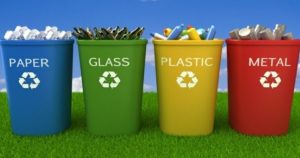 Reusing moderates assets
Reusing moderates assets
At the point when we reuse, utilized materials are changed over into new items, diminishing the need to devour normal assets. Whenever utilized materials are not reused, new items are made by extricating new, crude material from the Earth, through mining and ranger service.
Reusing helps save significant crude materials and secures characteristic natural surroundings for what’s to come.
Reusing spares vitality
Utilizing reused materials in the assembling procedure utilizes significantly less vitality than that required for delivering new items from crude materials – in any event, when looking at all related costs, similar to ship.
Additionally there are additional vitality reserve funds since more vitality is required to separate, refine, transport and procedure crude materials prepared for industry contrasted and giving industry-prepared materials.
Reusing secures nature
Reusing lessens the requirement for removing (mining, quarrying and logging), refining and preparing crude materials all of which make generous air and water contamination.
As reusing spares vitality it likewise lessens ozone depleting substance emanations, which assists with handling environmental change.
Reusing lessens landfill
At the point when we reuse, recyclable materials are reprocessed into new items, and subsequently the measure of refuse sent to landfill destinations diminishes. There are landfill locales, these destinations delivered a fourth of the outflows of methane, an incredible ozone depleting substance.
6 regular reusing legends
1. There is no point reusing, it doesn’t have any kind of effect.
Indeed it does! Reusing stops huge amounts of trash being covered in landfill. In the UK, reusing spares around 10-15 million tons of carbon emanations a year, which is what could be compared to taking 3.5 million vehicles off the street.
2. Doesn’t my reusing wind up escaping with the garbage at any rate?
This couldn’t possibly be more off-base! Your reused material is an important asset. When it has been gathered (this remembers reusing gathered for the rear of receptacle lorries) from your doorstep it’s removed to be arranged, bailed and afterward moved to reprocessors to be made into new items.
3. I don’t make any food squander so I don’t have to utilize a food squander assortment administration.
We as a whole make probably some unavoidable food squander. Shouldn’t something be said about plate scraps, vegetable peelings, egg shells, teabags and bones? These all consider food squander and can be set in your food squander caddy to be reused. Regardless of how little you reuse, everything makes a difference!
4. You can’t reuse a wide range of plastic holders?
Indeed, you can! This is valid at times as there are six distinct kinds of plastics and not these are as of now recyclable. By and large your board will reuse regular family unit squander things, for example, plastic containers, margarine tubs and yogurt pots. Check with your gathering first. Did you know, we use around 725,000 plastic containers daily in Wales yet at the same time just reuse just half of them?
5. You can just reuse paper a couple of times.
This is mostly evident – strands in paper will begin to stall when they have been reused five or multiple times, notwithstanding, even as the nature of the paper material lessens it can in any case be effectively utilized, in egg containers, cardboard bundling, space protection, paints and even new street surfaces.
6. Reusing metal uses more vitality than separating the crude material in any case.
This isn’t accurate – mining and handling metal uses enormous measures of assets and vitality. Reusing metal things, for example, drinks jars and soup tins spares vitality. Reusing aluminum jars sets aside to 95% of the vitality expected to make new jars from new crude material. The vitality spared in not making only one can is sufficient to control a TV for 3 hours.
